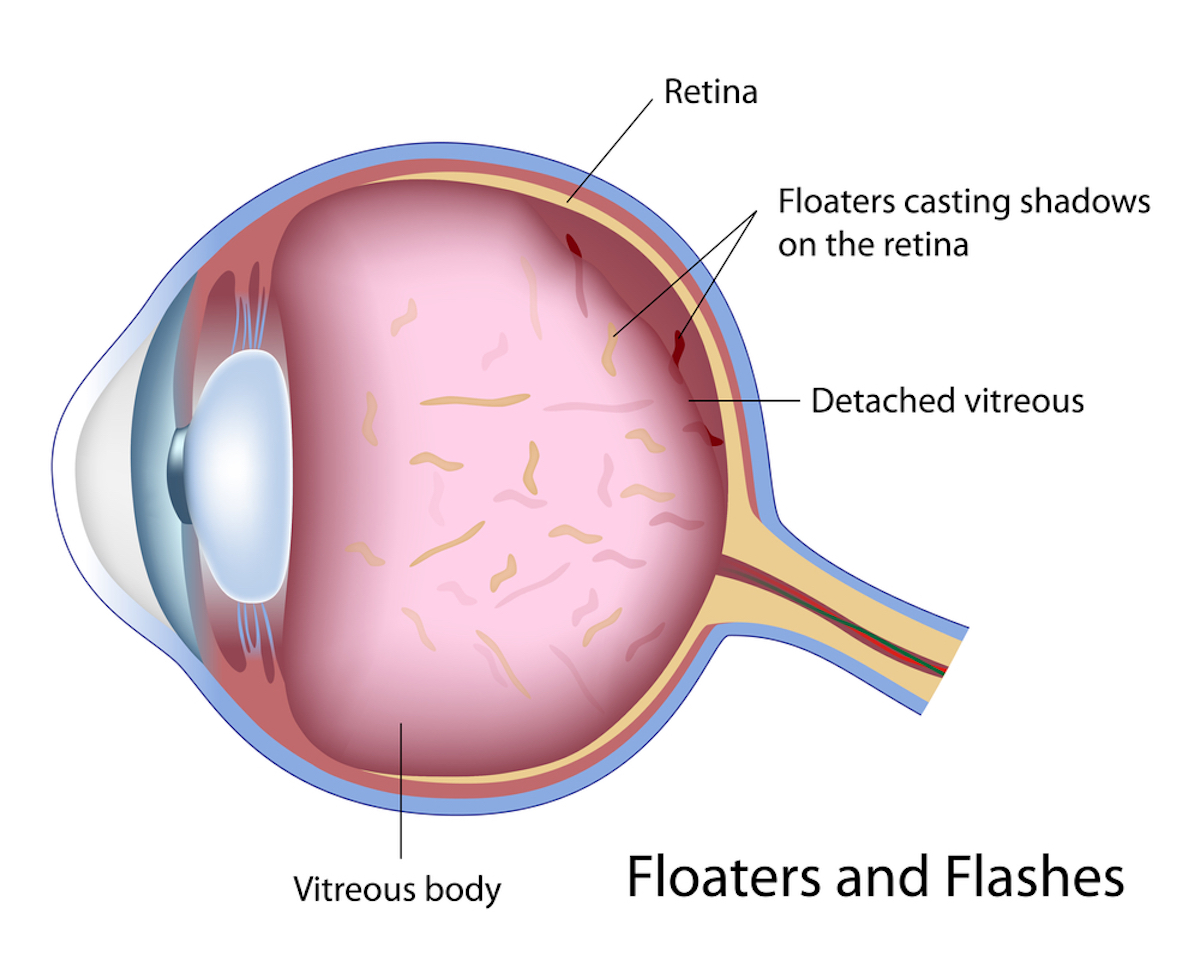Did or do you even notice small spots drift through your field when you’re staring at something bright, like the blue sky or white paper? These black – or gray-looking spots are called eye floaters and can be pretty annoying, especially if it interferes with your eyesight. Often they look like cobwebs, strings, or specks that drift over your sight, but once you want to look directly at them, they drift away. Floaters are a harmless eye condition that generally doesn’t bother you much, if at all. This does not always have to be the case, as there are also cases where people had to be helped by an ophthalmologist.

Causes of Eye Floaters
The most important question is most likely: what causes eye floaters? Well, there are several reasons why you can develop eye floaters, but the main cause is aging. The older we get, the more (medical) issues we get, and one of them is eye floaters. When we get older, a gel-like fluid called vitreous starts to shrink, and a direct consequence of this is that small particles will float around in the vitreous. These small particles are called eye floaters. This doesn’t mean young people cannot get this eye condition. In people under 40 who suffer from eye floaters, myopia is generally the cause. Other – less common – causes are:
- Blood in the eye(s)
- Inflammation
- Eye damage
- Medication and eye procedures, like cataract surgery or macular degeneration
- Diabetes
- Cytomegalovirus (CMV)
Are Eye Floaters Harmless?
Eventually, the floaters will drift to the bottom of your eye, where you won’t be bothered by them anymore, and you can continue living your life as you’ve always done. The fact that this condition is generally harmless means that you can just always ignore it. So make sure you recognize the symptoms and know when you should contact your professional healthcare provider.
Most cases of eye floaters are harmless, and the floaters will disappear over time. Though there are signs that floaters can be a symptom of conditions that do need medical emergency care. Of these, the most recognizable and logical warning signal is loss of vision due to large or many floaters. Other signs are a fast and big increase in eye floaters, light flashes, and eye pain. These are all warning signs of retinal detachment, which means you can lose your eyesight.

Once you experience these symptoms, it’s important to visit your professional healthcare provider – preferably an ophthalmologist – to get your eye(s) checked out. The ophthalmologist will ask you a few question to determine if you indeed suffer from (severe) eye floaters. Questions include:
- When did you first notice them?
- How do the floaters look like and how many do you usually see at a time?
- How often do you experience them?
- Have you ever seen flashes in your vision?
- Have you had any eye surgeries in the past?
- Do you see any shadows on the side of your vision (peripheral)?
Treatment Options
Once your ophthalmologist has made the diagnosis, they will look at a possible treatment plan. Is it bad enough, and they really don’t go away on their own? This process is obviously greatly influenced in whether you suffer from loss of vision or not. In case you’re experiencing shadows or loss of vision, treatment plans will be discusses much sooner than when you suffer from (many) floaters for a long time. Treatment options to remove eye floaters are:
- Eye floater surgery
- Laser vitreolysis
Eye issues can have a gigantic impact on your life and the way you live. So it’s important to take care of your eyes with the utmost respect. Don’t ignore eye issues and make an appointment with your professional healthcare provider to check your eyes even if you have mild symptoms. In addition, it is also very important to be adequately informed about eye problems and their treatments. Continue your search here:

